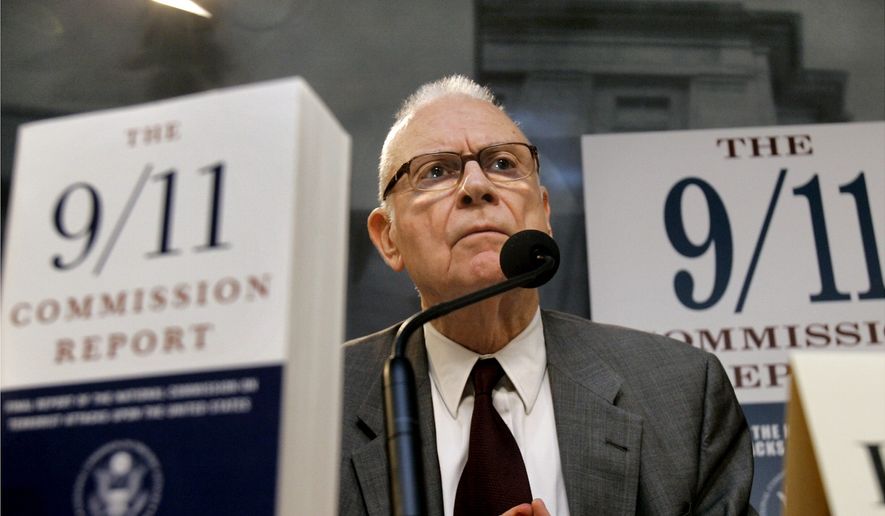An independent oversight board recommended by the 9/11 Commission to ensure that national security policies do not infringe on Americans’ civil liberties has remained dormant for years, raising concerns among watchdogs that a crucial Constitution safeguard does not exist.
Well past the halfway point of his term, President Obama has appointed only two of the five members for the Privacy and Civil Liberties Oversight Board, which also languished under President Bush.
“There are no excuses for not getting this board up and running,” said Sharon Bradford Franklin, senior counsel at the Constitution Project, one of more than a dozen groups that recently petitioned the administration to get the board operational.
Analysts say a host of national security issues — such as airport screening, cybersecurity policies and an upcoming Supreme Court case on whether law enforcement can attach a satellite tracking device without a warrant — would have benefited from independent oversight.
“The launch of an independent oversight board is long overdue,” Ms. Franklin said.
The White House has no explanation for why the board vacancies have proved so hard to fill, and declined an opportunity to comment for this article.
According to the board’s 2007 report to Congress, one of its tasks was to review the FBI’s use of national security letters, which allow authorities to get financial, credit and other information on U.S. citizens without a court order.
“If the board is no longer meeting, one would assume it is no longer performing this oversight role, which is concerning given the recent extension of the Patriot Act,” Jennifer Lynch, staff attorney for the Electronic Freedom Foundation, said in an email.
Civil liberties groups have pushed for years to get the board fully operational after Congress strengthened it in 2007 and gave it subpoena powers.
But since then, neither Mr. Bush nor Mr. Obama nominated enough members. Mr. Obama nominated two members last year, but three vacancies remain.
Mr. Obama’s nominees so far are James Dempsey, vice president of public policy at the Center for Democracy and Technology, and Elizabeth Collins Cook, a lawyer in private practice who worked in the Justice Department in the Bush administration.
Last week, more than a dozen organizations wrote to Mr. Obama expressing concerns about the lack of nominations to the board.
“Sadly, although Congress took the important step of creating an independent body tasked with both advising the executive branch on policy and overseeing its implementation, the [privacy board] has remained an unfilled promise,” the groups wrote in a letter to the White House. Among the groups that signed the letter were the Constitution Project and Electronic Frontier Foundation.
The oversight board was formed in 2004. It came under criticism for being too close to the Bush White House, so Congress made it an independent panel in 2007.
However, the lack of activity by the board has been a concern for years.
“Among our major disappointments has been the administration has not impaneled the Privacy and Civil Liberties Oversight Board,” former Rep. Lee Hamilton, vice chairman of the 9/11 Commission, testified to a Senate committee in March.
“I can’t figure it out,” Mr. Hamilton added. “I just cannot figure it out. I don’t know what President Bush and President Obama think. They just have not put an effective board in place and I can’t understand why.”
The White House declined to comment on the letter from civil liberties groups about the slow pace of naming panel members in response to an inquiry by The Washington Times last week.
Meanwhile, a separate internal privacy and civil liberties board within the Justice Department has quietly fizzled. The board was launched in 2006, but Justice Department officials told The Times that the panel hasn’t met since the Bush administration and that the current Justice Department had decided not to renew it.
The spokeswoman, Gina Talamona, said the board became inactive at the end of the Bush administration and officials decided not to start it up again under the Obama administration.
“The board hasn’t existed since the previous administration. It was created during the previous administration and it became inactive during the previous administration,” she said.
Ms. Talamona said the work that the board had conducted “during a brief period of time” is being conducted by existing offices and divisions within the Justice Department, including its chief privacy officer.
Another Justice Department spokeswoman, Xochitl Hinojosa, said despite the absence of an internal oversight board, the department had stepped up enforcement of civil rights laws.
Through the Freedom of Information Act, The Times sought all meeting minutes and agendas for the Justice Department’s privacy board over a period of years. But after taking more than a year to process the request, the department produced few documents, disclosing one agenda and several pages describing the board’s goals and structure.
• Jim McElhatton can be reached at jmcelhatton@washingtontimes.com.




Please read our comment policy before commenting.